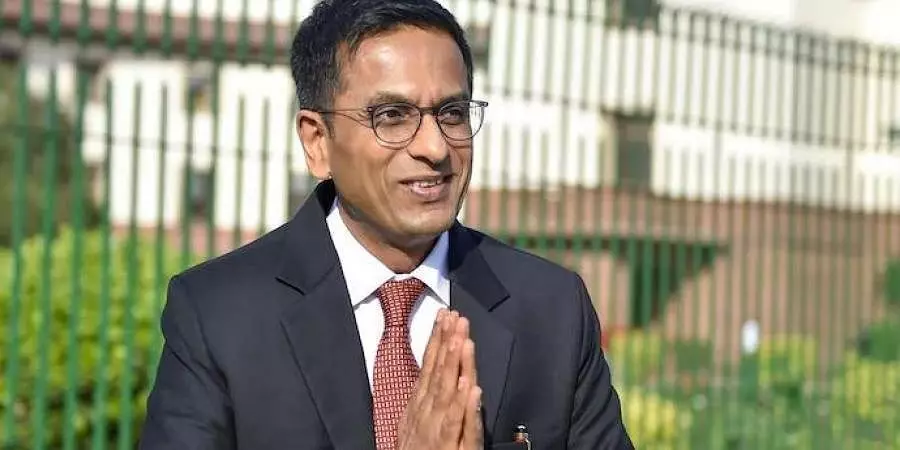
Justices DY Chandrachud sworn in as 50th Chief Justice of India
text_fieldsNew Delhi: Justice DY Chandrachud, a judge of the Supreme Court, was sworn in as India's 50th Chief Justice on Wednesday. At Rashtrapati Bhavan, President Droupadi Murmu gave the oath.
The CJI position will be held by Justice DY Chandrachud for more than two years, ending on November 10, 2024.
Justice Dhananjaya Y Chandrachud has been instrumental in the judicial system's digitization and has served on benches that rendered landmark decisions on the Ayodhya land dispute, Section 377, and the right to privacy, among other important matters.
The most senior judge on the Supreme Court follows in the footsteps of his father, the late Y V Chandrachud, who served as India's longest-serving Chief Justice from February 22, 1978, to July 11, 1985.
Appointed as SC judge in 2016, Justice DY Chandrachud overturned the verdicts of his father in 2017 and 2018. In the famous Aadhaar verdict, the judge had starked a discordant node by dissenting with the majority and ruling that Aadhaar was unconstitutionally passed as a money bill and violative of fundamental rights. He had also dissented in a case related to the arrest of five human rights activists who had allegedly incited violence at Bhima Koregaon when the other two judges of the bench had allowed Pune police to continue their investigation as per law.
Justice Chandrachud has been a part of many constitutional benches that have delivered path-breaking verdicts such as the decriminalisation of same-sex consensual sex by striking down section 377 of IPC which criminalises consensual unnatural sex between consenting adults and recognising "living will' made by terminally-ill patients for passive euthanasia which have played a major role in strengthening the human rights jurisprudence in the country. He was also part of the five-judge bench that delivered the famous Ayodhya verdict and that allowed the entry of women into Sabarimala temple.
The judge has also authored judgements that have batted for empowering women and breaking the shackles of patriarchy. In a ruling penned by him, the judge gave a massive boost to the reproductive rights of women by ruling that prohibiting unmarried or single pregnant women with pregnancies up to 24 weeks from accessing abortion while allowing married women to access them during the same period fell foul of the spirit of right to equality. In his most recent judgment, Justice Chandrachud remarked that two finger test re-victimizes & re-traumatizes women who may have been sexually assaulted and asked the centre to ensure that the practice is stopped.
With PTI inputs























